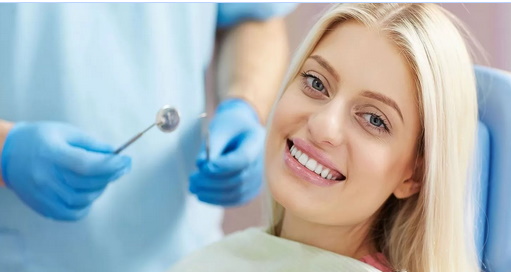Here is a great guide to denture adhesives
- Written by The Times

Denture adhesive can be a saviour when your dentures are prone to slipping or even if you want that little bit of security when wearing them. It can help to secure your dentures in place when eating, talking or laughing. There are almost endless adhesives on the market, so it can be difficult to decide which one is right for you.
To make this task simpler, we've compiled this post to break down the different types of adhesives and how they work:
What is dental adhesive?
Denture adhesive is often called dental glue, and it's designed to keep your dentures in position when you wear them. It is applied to the underneath part of the denture. It suctions to the gums to give the wearer a more secure fit. Dental adhesives come in many different forms including creams, pads, and gels. While proper-fitting dentures shouldn't slip or move, it can help those who have older dentures that aren't as secure as they once were or, as mentioned, for that additional security.
When in the market for a dental adhesive, it's always a good idea to consult with your dental technician first. They may be able to suggest a suitable option for you.
Do I have to use dental adhesive with my dentures?
No, you don't! Dental adhesives are an additional extra that you use to keep your dentures in place. Your dentures should not move or slip if they are fitted properly. If you are noticing your dentures are slipping or coming loose, you may benefit from using a dental adhesive. If in doubt, speak to your local Gold Coast Same Day Dentures Experts!
While dental adhesives can be beneficial, they don't substitute professional advice from your dental technician. Always consult with them before you take measures into your own hands.
You may need to have your dentures refitted for a more secure and comfortable fit.
Why do dentures become loose in the mouth?
Dentures can become loose for several reasons. One of the more common ones is bone resorption. This is a condition where the gums shrink due to teeth no longer being in them.
Another reason is general wear and tear. Often eating hard food types over an extended period can cause dentures to become loose in the mouth.
Signs that my dentures don't fit properly
There are a couple of signs that your dentures are ill-fitting, some of these are listed below:
-
Discomfort in the mouth
-
Pain or sores on the gums
-
Dentures that move or slip out of place
-
You are experiencing difficulty when eating, drinking, talking, swallowing etc
-
You can hear a clicking noise when you chew
Often patients have trouble with slipping and movement from the bottom dentures more than the top and this is primarily because the bottom doesn't have anything to suction onto. A dental adhesive can help to keep the bottom dentures secure and in place.
Which are the best types of denture adhesives?
Listed below are some of the more common types of dental adhesives you can purchase:
Denture pastes
Denture pastes are the most common and typically most preferred type of dental adhesive. Their consistency is much like toothpaste, and it looks like toothpaste in a tube. A layer is simply applied directly from the tube to the underside of the denture. This then is placed into the mouth to create a suction and protective barrier between the gum and the denture. Sometimes denture paste can get messy, so to avoid overspill, it's a good idea to be mindful of how much you are applying to the denture.
Denture pads or strips
Denture pads or strips are adhesive strips that are cut to size, applied to the denture and then positioned in the mouth. The benefit to using this type of adhesive is that there is no mess, and you don't have to worry about overspill from denture paste and it getting everywhere. The downside is they tend to be more expensive.
Denture adhesive powders
Denture adhesive powders are a powder adhesive that is sprinkled onto the gum, and the moisture from your gums binds with the powder to create a strong adhesive. Adhesive powders tend to be less messy than pastes, and they work relatively quickly too. Once your dentures are applied, the powder formulation creates an airtight bond.
Alternatives to dental adhesives and dentures
While dentures are a fantastic way to enjoy a normal diet and restore a former smile, there are alternatives available. Having to apply dental adhesive every day can become a hassle, and if you have to keep going back to your dental technician for adjustments due to your dentures being loose, you may benefit from something more permanent. Implant retained dentures are designed to help those who have persistent troubles with their dentures moving.
These types of dentures are secured to 4 dental implants that are placed in the gums and are used as anchor points. Rather than using a dental adhesive, they clip onto your implants and provide a secure attachment that won't move.
Speak to the professionals
We hope this post has given you an idea about dental adhesives. Remember that dental adhesives can be beneficial, but they shouldn't be used in place of proper fitting dentures. If your dentures are slipping or you are looking at getting a realistic new set of dentures, feel free to contact the professionals here at Denture Care Professionals Australia. We'd love to hear from you and discuss your options!

















